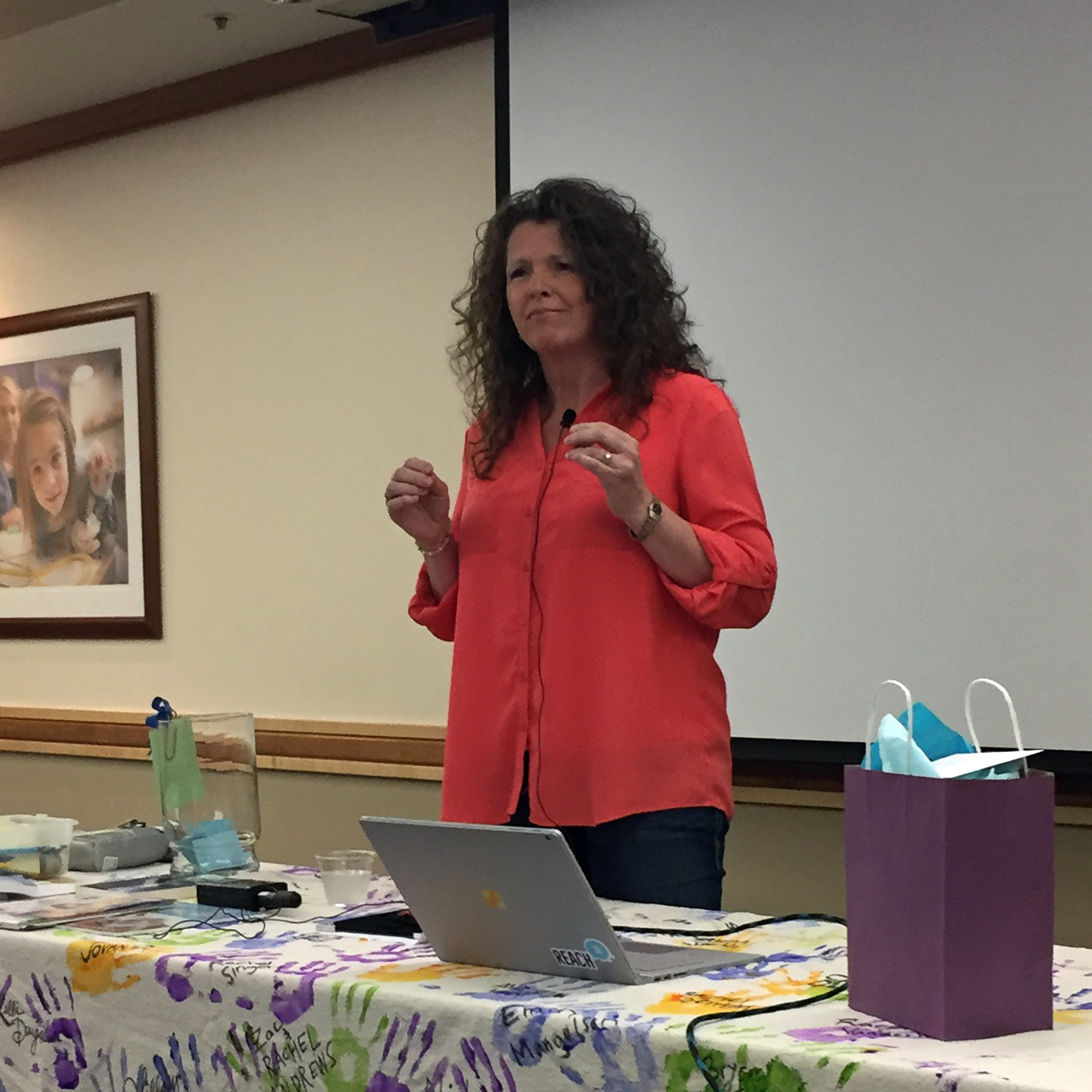What couples need to know about staying in recovery from pornography addiction for a lifetime.
Listen to this audio of a presentation by Karen Broadhead at a Reach 10 event (27 minutes).
Have you ever wondered how parents feel when they learn that one of their children is struggling with pornography? Karen Broadhead hears the concerns of parents all the time. She is a parent support specialist and founder of the Mothers Who Know program at Life Changing Services, advising and encouraging the parents of young men and young women who are addicted to pornography. She is also a mother of sons who are in recovery from this addiction. Through this experience, Karen has gained a great love and respect for those who are learning to live in recovery.

What happens when young people in recovery grow up, get married, and have families?
As her own sons and other young people in the Life Changing Services programs have grown up, she noticed something that wasn’t obvious when they were in the early stages of recovery. She had always heard people say that “Recovery is a journey not a destination,” but she is now finding out what that really means as her sons have progressed in their lives to become husbands and fathers. When Karen spoke at a Reach 10 meeting, we felt her message was important to share. You can read a short summary of her message here – listen to the podcast to hear more!
Staying healthy takes effort, whether it’s diabetes or addiction
What if someone who has diabetes decided that they don’t want to do all the things they need to do to stay healthy because it is embarrassing, takes time, and is inconvenient? What if they decided to pretend they were fine and didn’t need to do all those extra things like eating carefully and tracking their blood sugar? This is similar to someone with a serious pornography addiction. As they work on recovery, they learn habits and practices that help them with their goals, and they need to continue doing them to stay free.
Sometimes the romantic partner of someone in recovery doesn’t understand that their spouse, boyfriend, or girlfriend needs to keep practicing their recovery skills to stay safe and healthy. Especially if they haven’t been part of the journey from the beginning, they might want to think it was something in the past that is over and done, and doesn’t need to be talked about now. They might sometimes feel it is inconvenient, a sign of weakness, or socially embarrassing if their partner is still involved with recovery work. (Sometimes even the person in recovery feels that way!)
If the recovering partner does not feel accepted and supported in continuing their work, and maybe even feels silenced and judged, it can lead to a return of their struggle and eventual relapse.
Addiction is a new dynamic in a relationship
When someone tells their romantic interest that they have dealt with an addiction, it’s a new dynamic moving forward. Ignoring, minimizing, or dismissing the past is not the best way to handle it.
The person in recovery has a responsibility to themselves and their potential spouse to communicate what it looks like to be on a journey of recovery. This can be hard to describe, especially for new couples who have never been married and don’t know quite what it will be like. Also, the supporting partner has often not been around the recovering partner when they were deep in addiction, so they can’t understand what their loved one is like in that condition. Being flexible and learning together over time is key. You can learn from couples who have been through this such as Ashlynn and Coby Mitchell, Traylor and Melody Lovvorn, and Steven and Rhyll Croshaw.
The journey is not always a struggle – it’s just a journey
Karen brought up some important issues that no one has really been talking about much. We also want to add some thoughts about what it means to “Live in recovery” or “Be on a journey of recovery.” How do you feel when you hear things like “Addiction is never in the past” or “Recovery is not a destination?” Does it make you worry that someone with a pornography addiction will always be battling the craving? Do you wonder if real freedom is even possible?
We want to make it very clear that we believe anyone who has been addicted to pornography can live a life that is free from struggle and relapse – a life of happiness, peace, love, and significant contribution to the world.
The way to that freedom is to learn skills and strategies to manage compulsion, stress, and emotions, and to continue practicing them. At it’s core, recovery is healthy, balanced, and connected living for a lifetime. Someone who has been addicted – and those who share life and love with them – just need to remember that it is those healthy living habits that keep them safe, and not get careless about those practices.
Although it may be tough when life gets hard, it’s important to never put recovery on hold while dealing with other life challenges. When stress is high, someone with an addiction may turn to the problem behavior to try to escape the pressure. Challenging times are occasions to turn up the healthy coping strategies.
How to talk about sharing a lifetime journey of recovery from pornography addiction
Since it is so important for couples to talk openly about this, we put together some starting points for conversations. Use any of these that seem to fit your situation. The important thing is to talk about a future together that includes staying on a recovery journey.
Ideas for the recovering partner:
- What it means for me to stay in recovery.
- What I need from you to support my recovery.
- What life will look like if you choose me.
- The issue that I have has requirements that will affect our life, in some ways like someone who has a health condition that needs to be managed in order to stay healthy. Can you allow me space and time to stay strong for our relationship and life together?
- I commit to continue these healthy practices my whole life so that we can have a wonderful, loving life together.
- I understand that this may cause you pain at times, and I will listen to your feelings with love, honesty, and humility. I will encourage you to find any resources you need to feel safe and strong.
Ideas for the supporting partner:
- What will be my role in sharing life with someone in recovery?
- What I need from you so that I can feel loved, safe, and understood.
- What I expect life in recovery will look like.
- Being a supporting partner may sometimes take a lot of energy, and I may need extra time or resources to care for myself so that I can stay healthy. Can you allow me space and time to stay strong for our relationship and life together?
- I commit to cheering for you, allowing time for recovery work, and helping create a safe environment. I understand that at times, recovery work may have to take priority over other important things.
- I will try to understand that the addiction is not about me. I know it began long before I was part of the picture, but it will take work to not take it personally. It might hurt sometimes. I will do my best to be calm and compassionate, but I need you to listen to my real feelings.
I keep working on recovery because I love you
This is just a start for navigating a complicated issue, but we absolutely believe that when couples are educated, honest, and compassionate they can have a happy and fulfilling life together. When you sign up and are committed to love someone, you sign up for the whole experience. The best perspective is to see recovery work as evidence that someone cares enough about their relationship to do everything in their power to protect it. Continuing the work is a sign of strength and love, not weakness. Learn more about strengthening your relationship with a spouse in recovery here.
So keep learning, keep talking, and keep moving on that journey together!










